Raw Carob Powder
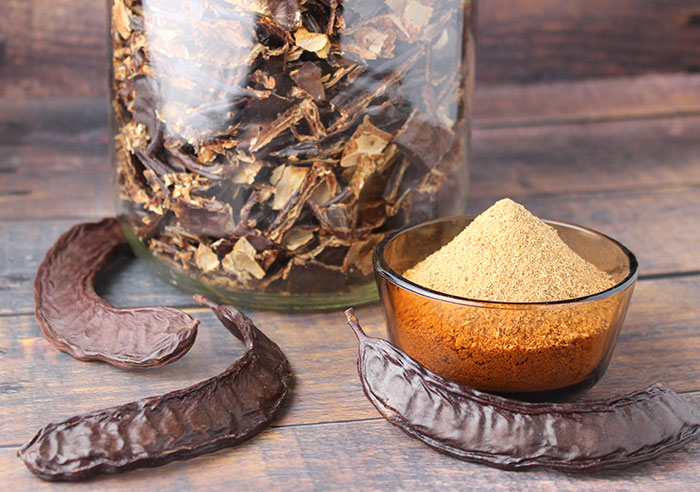
Raw Carob Powder is derived from the dried pods of the carob tree (Ceratonia siliqua). The pods are ground into a fine, dark brown powder, which is often used as a natural alternative to cocoa powder. Carob powder has a sweet, mild, and slightly nutty flavor, making it a popular ingredient in various recipes, especially for those seeking caffeine-free options. The powder is rich in fiber and natural sugars, offering a nutritious alternative to chocolate.
1. Size:
- Carob pods vary in size, but once ground, the powder has a fine, consistent texture. It typically appears as a dark brown powder.
2. Color:
- The powder is dark brown, reflecting the color of the roasted carob pods from which it is made.
3. Texture:
- The texture of carob powder is fine and smooth, similar to cocoa powder. It blends well into liquids and dry ingredients.
4. Fragrance:
- Carob powder has a mild, sweet aroma with subtle nutty undertones, which makes it pleasant and inviting in both sweet and savory dishes.
5. Uses:
Raw Carob Powder is commonly used as a cocoa powder substitute in baking, smoothies, and desserts. It can be added to cakes, cookies, and brownies for a rich flavor without caffeine.
Due to its high fiber content and natural sugars, it can be used as a healthful additive in various recipes to boost nutritional value.
It can be used to make carob-based hot drinks or added to coffee alternatives.
Carob powder is often used in dietary plans for those who need to avoid caffeine or chocolate due to sensitivities or preferences.
6. Habitat:
- The carob tree is native to the Mediterranean region but is now grown in various parts of the world with a similar climate. It thrives in warm, dry environments and is well-suited to areas with minimal frost.
7. Cultural and Spiritual Significance:
Carob has historically been used as a symbol of sweetness and abundance. Its use in ancient cultures was often associated with celebratory and ceremonial foods.
In some cultures, carob was used as a substitute for chocolate in religious and fasting periods due to its sweetness and health benefits. It is also valued for its role in traditional medicine.
Spiritual Properties
Harmony and Balance: Carob is believed to help promote emotional balance and harmony. Its natural sweetness is thought to bring comfort and a sense of well-being.
Grounding: The powder is sometimes used in spiritual practices for grounding and connecting with the earth. Its use in food is thought to promote a connection to nature and a balanced lifestyle.
Medicinal Properties
Rich in Fiber: Carob powder is high in dietary fiber, which aids in digestion and helps maintain a healthy digestive system.
Low in Fat: It contains minimal fat, making it a healthier alternative to cocoa powder in terms of calorie and fat content.
Antioxidant Properties: Carob is rich in antioxidants, which help combat oxidative stress and protect the body from free radical damage.
Calcium Content: It is a good source of calcium, which is essential for bone health and other physiological functions.
Allergic Reactions
Carob powder is generally considered safe for most individuals. However, some people may experience mild allergic reactions, such as skin irritation or gastrointestinal discomfort, especially if they have a sensitivity to legumes.
- Digestive Discomfort: In some cases, excessive consumption may lead to bloating or gas due to its high fiber content. It’s advisable to start with small amounts to assess tolerance.
- Potential Allergic Reactions: Those with legume allergies should exercise caution as carob is related to legumes. Symptoms may include itching, rash, or digestive issues.
- Overconsumption Effects: Excessive intake of carob powder can lead to digestive issues such as bloating or flatulence due to its fiber content.
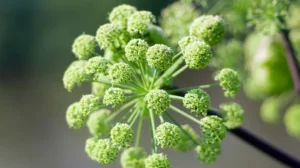
Angelica Root
Angelica Root Angelica Root, derived from the Angelica archangelica plant, is a powerful herb that has been used for centuries in traditional medicine and spiritual
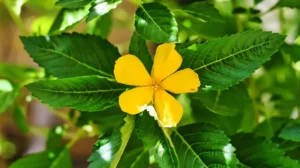
Damiana Leaf
Damiana Leaf Damiana Leaf is an aromatic herb known for its use in traditional medicine, particularly in Central and South America. It is valued for
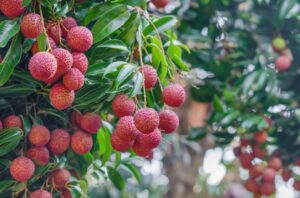
Lychee Berries
Lychee Berries Lychee Berries are tropical fruits known for their sweet flavor and distinctive appearance. They are highly valued in culinary applications and traditional medicine

Echinacea and its Evolving Role in Cold Treatment
Echinacea and its Evolving Role in Cold Treatment Echinacea, a vibrant purple coneflower, has a rich history in traditional medicine, particularly valued for its immune-boosting
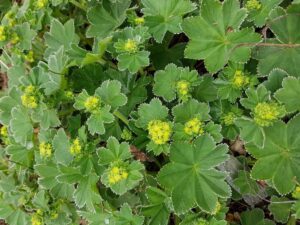
Lady’s Mantle
Lady's Mantle Lady's Mantle is a perennial herb known for its fan-shaped, serrated leaves and small yellow-green flowers. It has been traditionally used in herbal

Spiritual Protection Bath
Spiritual Protection Bath This bath ritual is perfect for cleansing and protecting your aura from negative influences. Commonly used in spiritual practices for shielding and